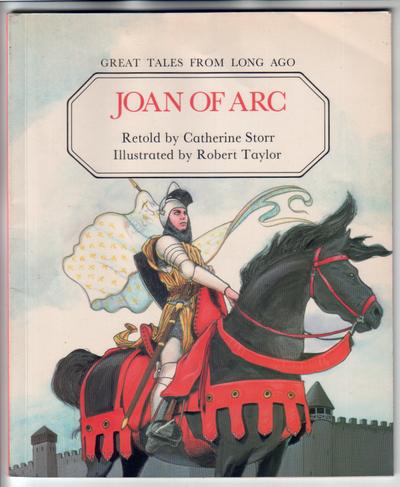


No wonder the British historian Helen Castor begins her highly satisfying biography of Joan of Arc by stating the obvious: “In the firmament of history,” the Maid of Orléans is a “massive star” whose “light shines brighter than that of any other figure of her time and place.” Indeed, Castor insists, Joan’s star still shines. And she’s the single thread that unites a bewilderingly diverse crowd of playwrights, writers, philosophers, poets and novelists, from Shakespeare to Voltaire, Robert Southey, Mark Twain, George Bernard Shaw, Vita Sackville-West and Bertolt Brecht. She has over a dozen operas and several dozen movies to her name. Exhibit A is Joan of Arc, simultaneously canonized by Pope Benedict XV and the women’s suffrage movement sometime mascot of 19th-century French republicans, 20th-century Vichy France and the 21st-century National Front.

Stripped of truth, deprived of personhood, they can be claimed and used by anyone for any purpose. These women - and they’re almost always women - become the public’s playthings in perpetuity. For the lucky (or unlucky, depending on your point of view), with the emptiness comes the possibility of a long afterlife as one of the blowup dolls of history. It feeds off its host - infecting, extracting, consuming its victim until there’s nothing left but an empty husk. Helen Castor brings us to the heart of the action, to a woman and a country in turmoil, a world where no-one - not Joan herself, nor the people around her, princes, bishops, soldiers or peasants - knew what would happen next.Fame is like a parasite. Joan and her world are brought vividly to life in this refreshing new take on the medieval world. And it is also the story behind the myth we all know, a myth which began to take hold at her trial: that of the Maid of Orleans, the saviour of France, a young woman burned at the stake as a heretic, a woman who five hundred years later would be declared a saint. Here is a portrait of a 19-year-old peasant who hears voices from God a teenager transformed into a warrior leading an army to victory, in an age that believed women should not fight. Instead of the icon, she gives us a living, breathing young woman a roaring girl fighting the English, and taking sides in a bloody civil war that was tearing fifteenth century France apart. Acclaimed historian Helen Castor brings us afresh a gripping life of Joan of Arc.


 0 kommentar(er)
0 kommentar(er)
